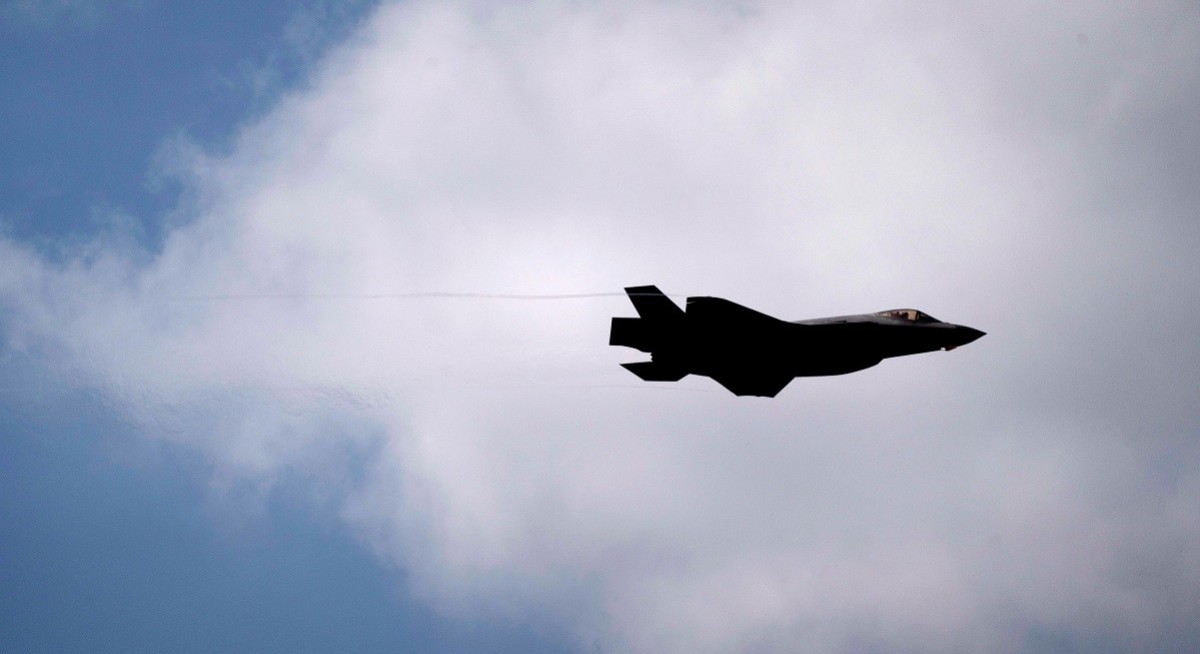Lutnick wasn’t quite correct — Lockheed said it got 73% of net sales from the US government in 2024 — but the point stood. It offered some indication of where President Donald Trump’s administration may be headed next after a series of interventions including taking a 10% stake in Intel Corp and a 15% cut of Nvidia Corp’s revenue from sales of some chips to China.
The S&P Composite 1500 Aerospace & Defense Index gained more than 2% Tuesday, while shares of Lockheed, General Dynamics Corp and Northrop Grumman also rose. Even so, analysts quickly raised questions about the legality of such a move, while others warned that it looked like socialism, with the US government taking control of private companies.
Among other concerns is whether owning a stake in defence contractors would affect the high-stakes, multibillion-dollar competition for Pentagon contracts, or whether the administration would seek to mitigate potential conflicts by holding stakes in multiple companies.
“It’s one thing for the government to bail out a company that’s critical to national security if it’s at risk of failing,” said Todd Harrison, a senior fellow at the American Enterprise Institute who focuses on defence. “It’s another thing entirely for the government to take an equity stake in a perfectly healthy company. It’s not clear why the administration thinks this is necessary and what legal authority it has to do such a thing.”
See also: Bond traders look to jobs data, stocks for gut check on rally
Asked later on Tuesday about the push to take stakes in private companies, Lutnick said such a move doesn’t amount to socialism.
In a subsequent statement, White House spokesman Kush Desai said Trump was looking to “safeguard our national and economic security while ensuring the best bargain” for taxpayers.
“The Administration will continue to explore other deals that ensure taxpayers reap the benefits of investments being made with their money by the federal government,” Desai said.
See also: Nasdaq 100 sinks 2% as AI jitters roil Wall Street
A potential deal could mirror the Pentagon’s move to assume a US$400 million equity stake in MP Materials Corp, in what would be an unprecedented use of the Defense Production Act, said Becca Wasser, defense lead for Bloomberg Economics.
In the case of MP, the Defense Department’s strategy appeared aimed at reducing its reliance on China for rare earths — something Beijing sought to leverage in responding to Trump’s trade war.
But the reason for seeking a stake in Lockheed is less clear, especially given that doing so risks reducing competition in an industry that has been criticised for excessive consolidation in recent decades.
“Equity investments could create the ultimate conflict of interest,” Jefferies analyst Sheila Kahyaoglu wrote in a note to clients. “We can only imagine the first protest of an award that goes to a prime that the [government] has an equity stake in over a non-government prime.”
The government previously has intervened to prop up crucial industries at a time when markets are breaking down, or to support a low-margin endeavour that private industry is reluctant to tackle.
Neither holds true for Lockheed.
“We don’t understand the logic of such a move,” said Byron Callan, a defence analyst with Capital Alpha Partners. He said the company has plenty of capital to spare and its credit rating is attractive.
To stay ahead of Singapore and the region’s corporate and economic trends, click here for Latest Section
“Lockheed Martin and other US primes have not evidenced existential competitive challenges,” he said.
Lockheed has had its troubles in recent months. The company caught investors off guard in July with US$1.6 billion in charges and a possible tax hit, while its best-selling F-35 jet faces criticism over cost overruns and delays.
The company’s long-term growth drivers are uncertain after Lockheed lost several-high stakes contests, most recently the F-47 fighter to Boeing.
By taking stakes in defence contractors, the Pentagon risks tipping the scales in a way that discourages competition, breeds complacency, slows down decision-making and “forces product development to fit an ideological roadmap,” said Richard Aboulafia, a defense analyst and managing director with AeroDynamic Advisory.




